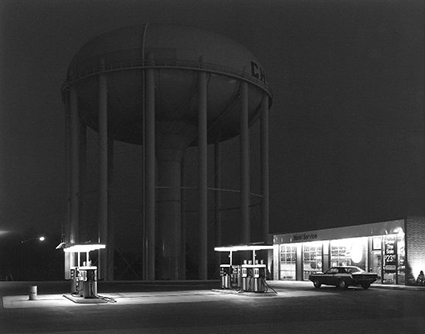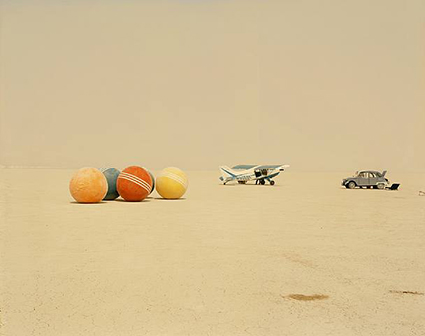22 Quotes By Photographer James Nachtwey
You’re sure to find many insights in this collection of quotes by photographer James Nachtwey.
“There is a job to be done…to record the truth. I want to wake people up!” – James Nachtwey
“When the truth is spoken, it doesn’t need to be adorned. It just needs to be simply stated, and often it only needs to be said once.” – James Nachtwey
“I try to use whatever I know about photography to be of service to the people I’m photographing.” – James Nachtwey
“The worst thing is to feel that as a photographer I am benefiting from someone else’s tragedy. This idea haunts me. It is something I have to reckon with every day because I know that if I ever allow genuine compassion to be overtaken by personal ambition I will have sold my soul. The stakes are simply too high for me to believe otherwise.” – James Nachtwey
“I attempt to become as totally responsible to the subject as I possibly can. The act of being an outsider aiming a camera can be a violation of humanity. The only way I can justify my role is to have respect for the other person’s predicament. The extend to which I do that is the extent to which I become accepted by the other, and to that extent I can accept myself.” – James Nachtwey
“I have been a witness, and these pictures are my testimony. The events I have recorded should not be forgotten and must not be repeated.” – James Nachtwey
“I want my pictures to cut through political abstractions… and make a connection on a human level.” – James Nachtwey
“I want to record history through the destiny of individuals who often belong to the least wealthy classes. I do not want to show war in general, nor history with a capital H, but rather the tragedy of a single man, of a family.” – James Nachtwey
“Photojournalists know the horrors of war can only be exposed at close range. Kodak Film.” – James Nachtwey
“For me, the strength of photography lies in its ability to evoke a sense of humanity. If war is an attempt to negate humanity, then photography can be perceived as the opposite of war and if it is used well it can be a powerful ingredient in the antidote to war.” – James Nachtwey
“I used to call myself a war photographer. Now I consider myself as an antiwar photographer.” – James Nachtwey
“I want to record history through the destiny of individuals who often belong to the least wealty classes. I do not want to show war in general, nor history with a capital H, but rather the tragedy of a single man, of a family.” – James Nachtwey
“I want my work to become part of our visual history, to enter our collective memory and our collective conscience. I hope it will serve to remind us that history’s deepest tragedies concern not the great protagonists who set events in motion but the countless ordinary people who are caught up in those events and torn apart by their remorseless fury. I have been a witness, and these pictures are my testimony. The events I have recorded should not be forgotten and must not be repeated.” – James Nachtwey
“The greatest statesmen, philosophers, humanitarians … have not been able to put an end to war. Why place that demand on photography?” – James Nachtwey
“Is it possible to put an end to a form of human behavior which has existed throughout history by means of photography? The proportions of that notion seem ridiculously out of balance. Yet, that very idea has motivated me.” – James Nachtwey
“But everyone cannot be there, and that is why photographers go there – to show them, to reach out and grab them and make them stop what they are doing and pay attention to what is going on – to create pictures powerful enough to overcome the diluting effects of the mass media and shake people out of their indifference – to protest and by the strength of that protest to make others protest.” – James Nachtwey
“If there is something occurring that is so bad that it could be considered a crime against humanity, it has to be transmitted with anguish, with pain, and create an impact in people – upset them, shake them up, wake them out of their everyday routine.” – James Nachtwey
“I don’t believe there’s any such thing as objective reality. It’s only reality as we experience it.” – James Nachtwey
“If I’m feeling outraged, grief, disbelief, frustration, sympathy, that gets channeled through me and into my pictures and hopefully transmitted to the viewer.” – James Nachtwey
“None of the editors I’ve worked with have ever asked me to pull my punches. They’ve never asked me to give them anything other than my own interpretation of events.” – James Nachtwey
“I don’t think tragic situations are necessarily devoid of beauty.” – James Nachtwey
“It is very hard to say where you’re going until you get there. That kind of thing is based very much on instinct. As a photographer, one of the most important lessons I have learnt is that you have to learn to listen to and trust your own instinct. It has helped to guide me – this far at least.” – James Nachtwey
Read more from The Essential Collection Of Quotes By Photographers.
View more in 12 Great Photographs By Great Photographers.




![008_Trees_Blowing_Snow_500[1]](https://www.johnpaulcaponigro.com/blog/wp-content/uploads/2021/02/008_Trees_Blowing_Snow_5001.jpg)